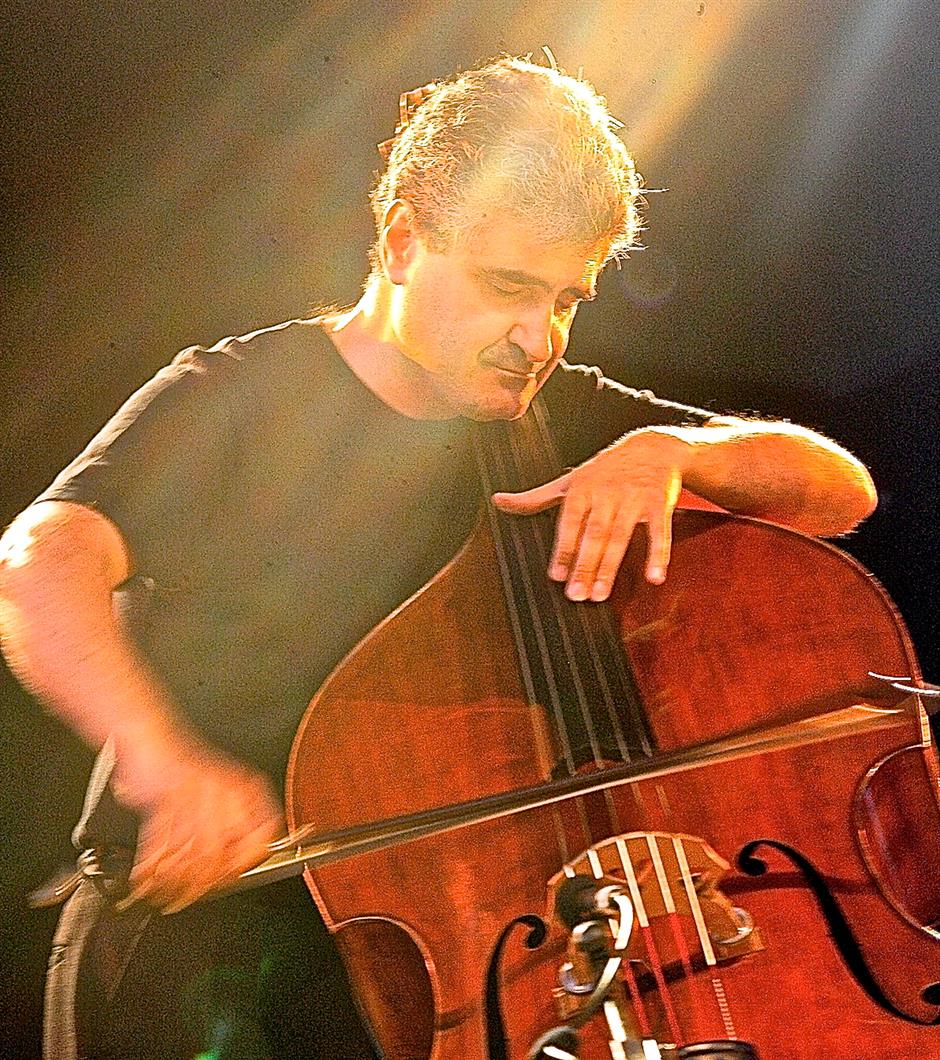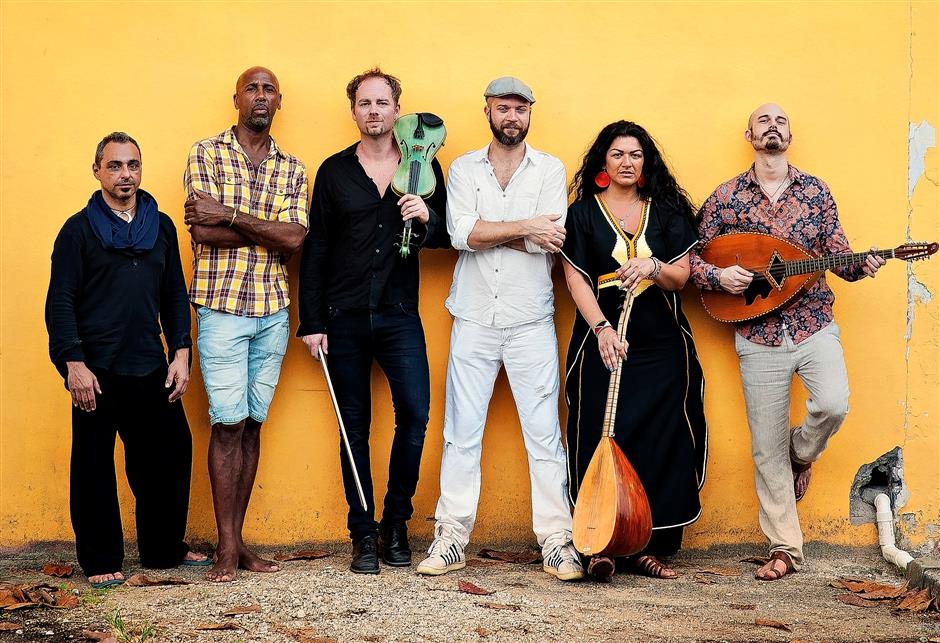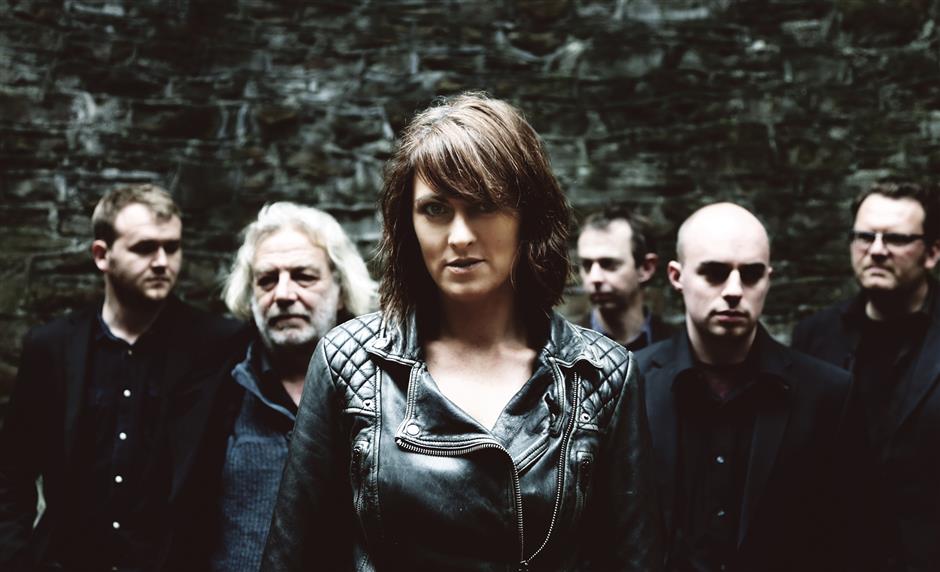Adding some razzle and jazz to bring pingtan to a new generation

Pingtan artist Gao Bowen
When Gao Bowen first attended pingtan class at the Shanghai Traditional Opera School as a ninth grader, there were 10 students. Within a few years, however, he was the only one left.
Gao, 47, has loved pingtan, a narrative musical tradition born in Suzhou and dating back to the Song Dynasty (960-1279), since he was a kid and listened to it on radio almost every night. In 1984, he bought a ticket to watch the first pingtan performance in his life. He even pretended playing pipa, a four-stringed plucked instrument, with broom when he saw artists on TV.
Gao will return to the stage of Shanghai World Music Festival during the National Day holiday with more surprises.
“Because we are performing outdoors, we will choose the music accordingly,” says Gao. “If it is as slow as usual, the audience may get bored.
“But I don’t worry about foreigner audience or young people not having an ear for music of this kind. That’s the beauty of music. Do we need to understand Italian to enjoy opera? Not necessarily,” he explains.
To attend an audition with the Shanghai Pingtan Troupe, Gao says he even stole money from his parents’ drawer for the entrance fee when he was 16. He was one of only 10 chosen from the 200 applicants.
But he had second thoughts after he saw his peers slowly switching to other career paths.
“I seriously considered becoming a DJ and having a certificate that allowed me to perform,” Gao says.
But he finally stayed on thanks to the government's effort in and support for preserving traditional culture.
However, Gao says he doesn’t expect pingtan to become an integral part of people’s life again.
“It will never be popular or mainstream again,” he notes. “Frankly, pingtan got that popular mainly because there were not much entertainment options back then. Can we make it popular again? Certainly not. But so long as there is a niche market and it will be passed down, I’m content.”
For Gao, the main problem for pingtan survival is fading interest. When he was doing promotion on campuses, he found that young people could hardly relate to classical works. So he tried to spark their interest by doing comparison, for example, between people falling in love in ancient and modern times.
Unlike some conservative traditional artists, Gao is all for bringing pingtan into the 21st century. He has added jazz and rock elements into the slow tunes of pingtan and proven that music really has no boundaries.
Gao feels the essence of pingtan lies in the wisdom of life passed down from generations.
“Anyone can learn to play pipa and sanxian (a three-stringed fretless plucked instrument). And everyone living in Suzhou can speak the local dialect,” he says. “These don’t make pingtan special. But the wisdom in the stories is precious.
“My former students didn’t understand the deep meaning when they were learning it, but as they grew older and gathered more experiences, they told me that pingtan has taught them useful life lessons, like when to keep a low profile and when to stand up.”

Renau Garcia-Fons

Nadin Al Khalidi (second from right) and her Tarabband
Other troupes performing at the World Music Festival
Renau Garcia-Fons Trio (France)
Renau Garcia-Fons, a French double bass player and composer, likes to improvise. He boldly added a fifth string to bass, making it more than an accompanying instrument. Combining this with his con arco and pizzicato techniques, he is known as the “Paganini of the double bass.” But he prefers to be compared to Astor Piazzolla, Jimi Hendrix or Paco de Lucia — artists who have advanced the possibilities of their instrument through self-study.
Along with David Venitucci on accordion and Stephan Caracci on vibes and percussion, the Renaud Garcia-Fons Trio will walk the audience through the streets of Paris. From “Montmartre en courant” to “Rue du Dragon,” “Revoir Paris” mixes music and poetry, with a touch of nostalgia inspired by the words of Charles Trenet.
Tarabband (Iraq/Sweden)
Winner of the best world music group at Sweden’s Polar Music Prize in 2015, Tarabband is a six-member band recounting war stories through Arabic music. Leader and vocalist Nadin Al Khalidi fled her home country, Iraq, in 2001 to escape the ravages of war.
Since then, she has found a new purpose in recounting such tales through music. Along with musicians from Sweden and France, Tarabband is a cross-cultural attempt at “creating ecstasy through music.”
Khalidi says her band shows what can be achieved when people from different cultures come together.
“It says a lot without words,” she says. “We don’t think ‘you are an Arab or a Swede’ — we just play and it sounds great.”
Fay Hield Quartet (UK)
Fay Hield is one of the brightest stars of the current English folk music. MOJO magazine described her as “one of folk music’s preeminent modern voices.” Her recent album “Old Adam” was one of The Guardian’s “Best Albums of 2016.”
Ben Paley (fiddle), Roger Wilson (guitar, fiddle, voice) and John Spiers (melodeon) will join Hield on the stage to deliver a captivating performance.

Fay Hield Quartet
















